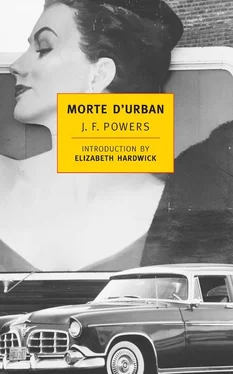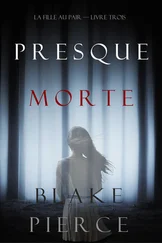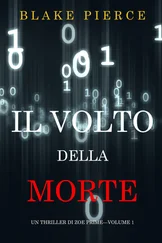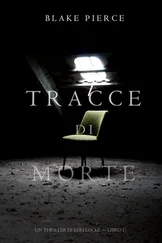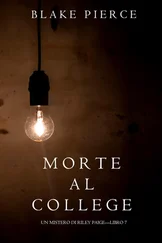So, with Phil out, and with Father Chumley, for all practical purposes, out — over in church, praying — things were in a bad way at St Monica’s. No wonder Phil was unpopular at the Chancery. Father Urban asked Monsignor Renton about this. “Is Phil getting any heat?”
“Yes, if that means anything — which I doubt,” said Monsignor Renton, who, it seemed, didn’t care for Father Udovic, the Chancellor.
“How about the consultors?” Father Urban asked. In any diocese, the bishop’s consultors are a comparatively gentle breed of men, older fellows who’ve received their earthly reward and risen as far as they’ll rise, but it is their duty, after all, to keep the diocese on a straight course, with or without the help of the Bishop.
“None of those guys wants an Orchard Park to rise up in his parish,” said Monsignor Renton, himself a consultor, “and certainly not I.”
And the Bishop — how was he taking it?
“Ah,” said Monsignor Renton. Phil was an irremovable pastor, but if the Bishop cared to get rough, he could avail himself of the prejudice against Phil that did, unfortunately, exist. The Bishop would never do this, though, for he had too high a regard for Phil as a person and as a priest. In fact, the Bishop might even have a secret sympathy for Phil in his present difficulty. Oh yes. For years, until his patron and pen pal Cardinal Mullenix died, the Bishop—“Dear James,” as Monsignor Renton called him — had sat on his ass, waiting to be translated to a more important see, and had built nothing. “It’s my guess there’ll be no change at St Monica’s until Phil dies.”
“I don’t get it,” said Father Urban. Phil, although he did have a heart condition, could live a long time, and St Monica’s couldn’t wait. And with all the fresh parishioners, so many of them young married people pulling down good dough and, unlike their elders, in the habit of spending it, there was no reason why St Monica’s shouldn’t have a new church at once . Yes, and a wing on the school. And how about a new convent for the good sisters? The first step should be a parish census. If the priests of the parish didn’t feel up to taking one, and doubtless Phil didn’t, well, there were always parishioners willing to go into the homes of other parishioners and ask a few questions. After the census, Phil would know where he stood, and could plan accordingly. Three, three and a half, maybe four hundred grand wouldn’t be asking too much of the people for a nice new church. “I still think he should build,” said Father Urban.
“No, the fuss would kill him — it’d be suicide,” said Monsignor Renton, and asked Father Urban how he’d like to spend his last days in consultation with fund-raisers, architects, contractors, and salesmen.
Father Urban hadn’t had this experience and could think of worse fates. “Then Phil should let somebody come here who will build.” There were men unhappy in rural parishes, there were men not doing so well where they were as they might do elsewhere, and there were men on the way up, assistants with their tusks fully grown, ready for parishes of their own. “He’s like the dog in the manger now.”
“I trust you’ll never say anything like that to Phil. Because that’s exactly how he feels.”
“Then why doesn’t he put in for a change?”
“Phil feels it would be for too short a time — and so do I.”
Well, Father Urban would be sorry when and if Phil departed this life, and perhaps others besides Monsignor Renton and the Bishop would be sorry, but in an ongoing institution like the Church there was just no place for such a man — or, if there was, it wasn’t in a parish like St Monica’s.
And was Monsignor Renton’s devotion to his friend, so good to see, really so pure and selfless as it appeared?
One Saturday night, in the middle of December, Father Urban was locking up the church when Monsignor Renton appeared, carrying a light bulb and saying that nothing annoyed him so much as burned-out bulbs in public places. They dragged out a ladder and replaced a bulb in one of the gilded sconces that flowered out from the sanctuary wall. The janitor, a cripple, was slow to make repairs requiring a ladder, Monsignor Renton explained, but what they were doing still struck Father Urban as rather odd. “Now that’s better. You’d never find fixtures like these today.” Monsignor Renton then said that he’d picked them up in Italy, and had had them wired for electricity. Even so, although, as every pastor knows, every donor wants his gift to be properly displayed, looked after, and prized over all others, Father Urban was still puzzled. But the changing of the light bulb, and the larger mystery of Monsignor Renton’s whole attitude toward building a new church, suddenly made sense to Father Urban as they were going out the door, when Monsignor Renton stopped and looked back at the little red wound of light in the darkness of the sanctuary and said, “I offered my first Mass in this old church.”
Phil and Monsignor Renton would be leaving for Florida in the wee hours, catching the North Coast Limited for Chicago at its nearest stop, and so New Year’s dinner was served the night before at St Monica’s. It was a goose-and-champagne affair, with Monsignor Renton present and Father Chumley leaving the table early to hear confessions (no more penitents than he could accommodate were expected on New Year’s Eve). Monsignor Renton and Father Urban did most of the talking. According to Monsignor Renton, there would soon be no oil left in the world, and the railroads would then be able to cash in on the situation that they, by running their passenger business so badly, had more or less created. Yes, the automobile was on the way out. It was just a question of time. The happy few would have their own horses and carriages, but most people would have to ride the streetcars (yes, they’d be back), and would be better for it, too. “If we’re careful, we should have enough coal for the railroads and industry, once we stop making cars and beer cans.”
“I didn’t realize there was such an oil shortage,” said Father Urban.
“I don’t think it’s generally known,” Monsignor Renton said. “A few years ago, you may recall, everybody was talking about tranquilizers — no ill effects, they said. I knew there’d be ill effects. Now everybody knows it. Too many people in this country are dedicated to the proposition that what goes up may not come down.”
“And now, in the same way, you know there’s a world oil shortage?”
“Yes. You can’t have as many morons as we have driving cars in this country without ill effects. There just isn’t that much oil — or anything — in the world.”
“How about atomic energy?”
“A bust, I’d say. No good has come of it yet, and I doubt that any will. When I was a boy, one of the worst things you could do was crap on somebody’s front porch. I don’t know that I ever heard of it actually happening, but I do know we talked about it a lot. Today it happens every day — to everybody. I’m talking about the fallout, of course. Ah, Mrs Burns, it isn’t often I get a chance at goose that hasn’t been frozen.”
When they finally rose from the table, they put on their coats and went out, Monsignor Renton going over to the church, Phil and Father Urban getting into the car.
They drove to the outskirts of Great Plains, and then on, into the country. Father Urban was to meet an old woman he’d be bringing Holy Communion to daily in Phil’s absence.
“I have to let her know when I’m going to be away,” Phil said.
Father Urban could see how a change of priests could be an unsettling experience for an old person, but he thought it odd that he was being given this chore. “Any others, Phil?”
Читать дальше
